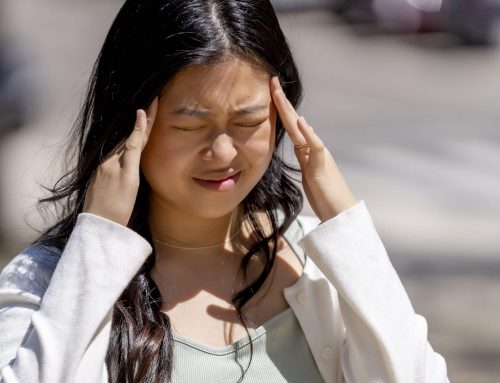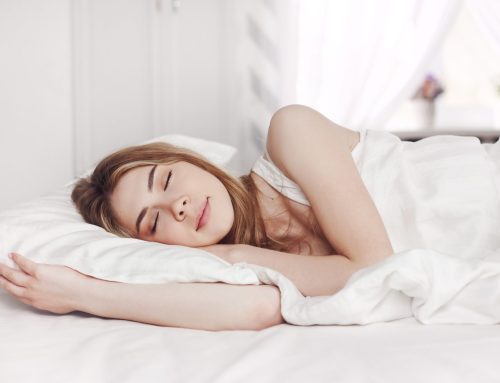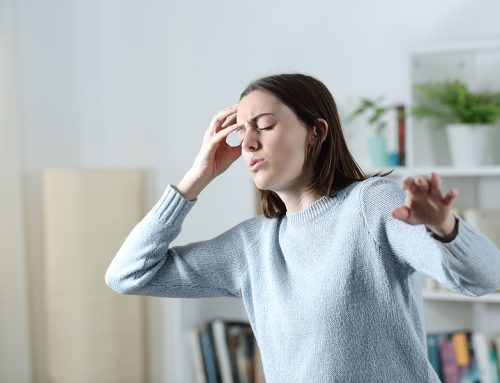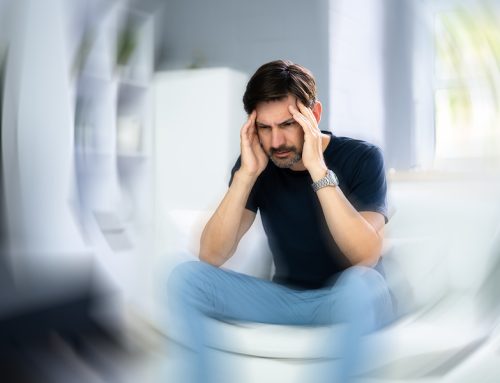Meniere’s disease (MD) is a problem of the inner ear that is known for:
- A spinning sensation (vertigo)
- Ringing in the ears (tinnitus)
- Hearing loss
- A feeling of congestion in the affected ear
- Abnormal headache
- Nausea and vomiting
- Sweating
Drop attacks can also occur. This basically means you suddenly fall to the ground but do not lose consciousness. MD usually begins affecting only one ear. However, over time the other ear may be included. Attacks of Meniere’s disease may last anywhere from 20 minutes to 3 hours. The length between episodes varies, and tinnitus and hearing loss may become permanent if not cared for. Meniere’s most often affects people age of 40 to 60 years, although it can occur at any time. Females tend to get it more often than males. It affects 1 in every 1,000 people.
Table of Contents
How Did Meniere’s Get Its Name?
In the early 1800s, Dr. Prosper Meniere realized that the symptoms associated with this condition were coming from the inner ear, not the brain as was widely accepted at that time. He also recognized that this was a single disorder that contained a number of symptoms. Over time, his theory became more and more accepted, and the name Meniere’s disease was coined.
What Causes Meniere’s Disease?
Meniere’s disease is still a bit of a mystery among those in the medical community. While it is unclear exactly why it happens, it is often attributed to both environmental factors and genetics. Many theories abound as to why it occurs, including:
- Blood vessel constriction
- Viral infections
- Autoimmune reactions
Approximately 10% of cases are seen to run in families. Symptoms are related to an abnormal build-up of fluid in the labyrinth and inner ear. Diagnosis is usually made after a discussion of symptoms and a hearing test. Other conditions that have very similar symptoms are vestibular migraines and transient ischemic attack.
Caring for Meniere’s Disease
The most common way to care for MD is to focus on alleviating the symptoms. Medications are often prescribed to alleviate nausea and anxiety. There really are no measures approved of to prevent attacks from happening. Some suggestions are:
- A low salt diet
- Diuretics to reduce fluid retention
- Corticosteroids
- Physical therapy to help with balance
- Counseling to help with anxiety
Sometimes injections in the ear are suggested or even surgery if nothing else seems to help, but these are usually last measures because of the associated risks involved. What are some of these risky relief options?
- Surgery to decompress the endolymphatic sac. This involves inserting a shunt and removing the sac. This may help reduce vertigo. However, sometimes the shunts become displaced and it is recommended only to use this in cases where nothing else works.
- In cases with severe hearing loss and vertigo, a chemical Labyrinthectomy may be done. A drug is injected into the ear to kill part or most of the vestibular apparatus.
- It is estimated that around 30 percent of those suffering from Meniere’s have eustachian tube dysfunction. A 2005 study found a little evidence to support putting tympanostomy tubes in the ears. However, a 2014 review stated that they were not supported to treat Meniere’s.
- Destructive surgeries may be recommended. Basically, a Labyrinthectomy is performed. However, in most of these cases, hearing is almost always lost in the affected ear.
- A vestibular neurectomy is a surgery to cut the nerve to the part of the inner ear that controls balance. The hearing is preserved in this procedure. The danger here lies in cutting open the lining of the brain. A hospital stay to monitor progress is required for a few days.
Can Anything Natural Be Used to Control Meniere’s Disease?
There are a few suggestions you can try at home to help reduce the symptoms of Meniere’s disease.
-
- A low sodium diet: The salt balance in the body is a vital part of inflammation – a major contributor to the onset of MD. By lowering your salt intake, fluid retention can be reduced.
- Balancing carbs and proteins: When carbohydrates are broken down into simple sugars, the amount of insulin in your bloodstream increases. Protein, on the other hand, causes the body to release glucagon to regulate the amount of insulin.
- Drinking lots of water: This may seem counterproductive as we have mentioned trying to get rid of the excess fluid in the body. However, a virus, bacteria, or pathogen may be causing the fluid build-up to occur. Drinking plenty of water helps flush out the body and balance the water contained within.
- Avoid inflammatory foods, sugar substitutes, and MSG: Anything that is hard to digest or can cause inflammation can lead to problems. Aspartame and MSG have been seen to aggravate MD.
- Avoid caffeine and nicotine
- Reduce the amount of stress in your life
Proper Spinal Alignment Reduces Symptoms of Meniere’s Disease
If a misalignment exists in the top bones of the neck – the C1 and C2 vertebrae – this may be an underlying cause of Meniere’s disease. A misalignment here puts the brainstem under pressure and causes it to send improper signals to the brain. It also affects the nerve that connects the ear to the brain. This can be a reason for fluid build-up and then the onset of Meniere’s.
A study observed 139 Meniere’s patients before and after they received care from an upper cervical chiropractor. All of them had previously had some sort of trauma to their head or neck, such as whiplash or a trip and fall. Every one of these patients saw a great improvement in their symptoms after having their neck bones realigned.
Here at Upper Cervical of Sioux Falls in Sioux Falls, South Dakota, we use a very gentle method that does not require us to pop or crack the spine to encourage the bones to realign naturally. Our patients report similar results as those in the above study.
To schedule a complimentary consultation with Dr. Casey Weerheim call our Sioux Falls office at 605-275-6900. You can also click the button below.
 If you are outside of the local area, you can find an Upper Cervical Doctor near you at www.uppercervicalawareness.com.
If you are outside of the local area, you can find an Upper Cervical Doctor near you at www.uppercervicalawareness.com.






